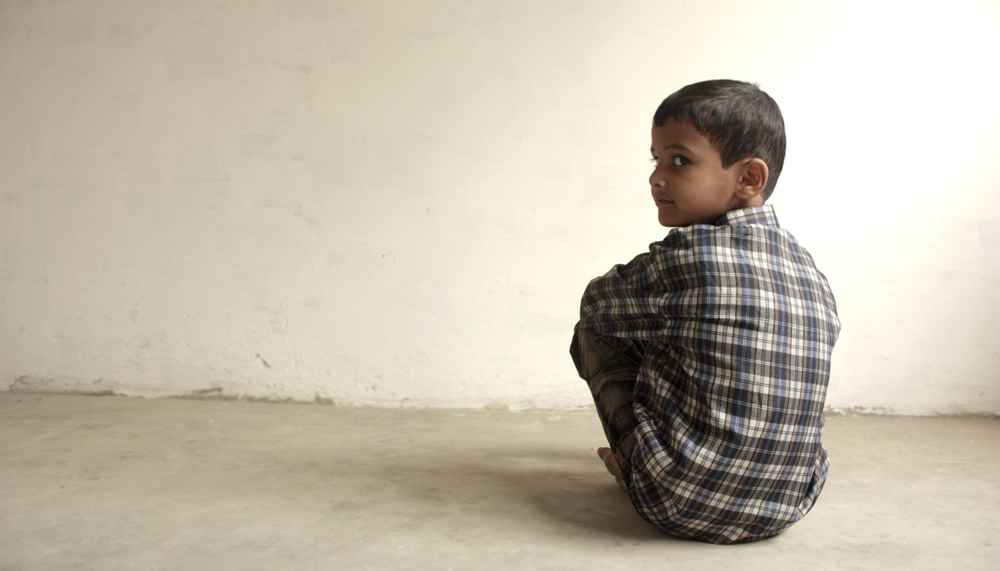The numbers show children in detention centres face higher risks for mental, physical and social problems.
If you open an Australian newspaper or news website, questions or criticism regarding the treatment of refugees in Australian immigration detention centres and offshore processing centres will probably be present.
It is becoming increasingly difficult to engage in meaningful debate or comment about this issue, as the Australian Government continues to reduce the amount of information it shares about the treatment of refugees; however, nurses and the wider health community should be concerned about the wellbeing of people in detention centres, especially children. Psychosocial trauma and lack of healthcare in childhood are known to have a negative impact on a child’s social, emotional, cognitive and physical development. This can result in the child experiencing learning difficulties, behavioural problems and physical and mental ill health.
Earlier this year, the Australian College of Nursing (ACN), together with Maternal, Child and Family Health Nurses Australia, prepared a submission for the Australian Human Rights Commission’s National Inquiry into Children in Immigration Detention 2014. ACN has spoken about these issues before but the submission made us all the more aware of the increasing danger for children in these detention centres.
As of July 2014, the Australian Human Rights Commission reports, there were 983 children in Australian immigration detention facilities – 775 in locked sites within Australian territories and 208 on Nauru. Worryingly, 54 of those children were unaccompanied.
From a health perspective, these statistics become even more disturbing the longer the children spend in detention centres. As of January 2014, 321 children had been detained for more than six months and 38 had been held for more than one year. An extended period of time spent in involuntary detention can result in these children experiencing disadvantage as adults because of lack of access to education. They can also be exposed to violence and harm that can result in mental and physical issues. Research has also found that asylum seeker children are likely to be at higher risk for certain preventable diseases and are unlikely to have the immunisation status the majority of the Australian population holds.
There is also evidence that repeated involuntary relocations are harmful to children. As of March 2014, 304 children were held on Christmas Island and subject to offshore transfer to Nauru. These involuntary relocations disrupt routines and result in the loss of community and peer support. Additionally, children aged between 12 and 17 may be at a heightened risk of experiencing mental distress when they are moved involuntarily.
From January 1, 2013, to March 31, 2014, 128 babies were born in detention facilities. It should cause unease amongst us all that women in these places do not have sufficient access to antenatal education, breastfeeding support and screening for postnatal depression. Health issues that affect mothers during birth can have a severe impact on the child throughout their time in detention and their future lives.
Dr Peter Young, chief psychiatrist with International Health and Medical Services, spoke at the National Inquiry into Children in Immigration Detention about the issues surrounding situations these children are held in. He stated that many across the mainland detention system are showing emotional distress or related symptoms. Some of them were also reported as showing self-harm, regression, aggression, bed wetting and despair.
The nursing profession, and the healthcare industry as a whole, has major reason to be concerned about Young’s comments. From January 2013 to March 2014, there were 128 reported self-harm incidents amongst children in closed immigration centres. It is unknown how many self-harm incidents were averted by the competent nurses and other health practitioners providing support to children in detention centres, but this number of reported incidents is easily recognised as much higher than it should be.
The ACN submission into the National Inquiry into Children in Detention 2014 highlighted a range of recommendations to protect the children held in immigration detention centres. The recommendations centred on children being held for the minimum period of time, children and their families having access to adequate and appropriate healthcare and staffing, and children and their families being placed in community detention instead of closed detention centres.
It is important that, for the short time any child should be held in detention, the nursing community has the ability to provide to these children the healthcare and support they need to overcome the distress of seeking asylum and living in detention centres. The early years of a child’s life lay the foundation for his or her future growth, development and happiness. With the sheer number of children in Australian detention centres, until such time as alternative arrangements are made, it is imperative that they are provided access to healthcare and education, as well as positive and safe living environments.
The Australian Government needs to be making every effort to ensure children in detention are not negatively affected and that they are provided with suitable access to healthcare – a fundamental human right.
Do you have an idea for a story?Email [email protected]
 Aged Care Insite Australia's number one aged care news source
Aged Care Insite Australia's number one aged care news source

